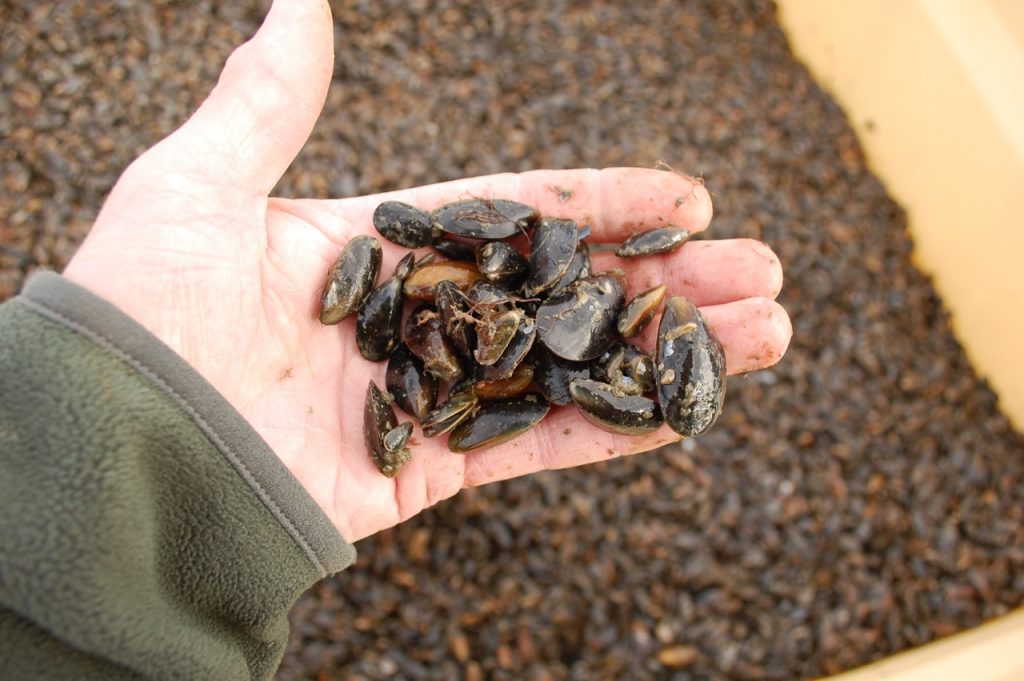Mussels

Species Description
Blue mussels Mytilus edulis
Wild and cultured.
The blue mussel is a common native bivalve mollusk that lives from the intertidal zone to depths of several hundred feet. They have a dark blue-black, elongated shell, and the meat inside ranges from cream to orange in color.
Season
Year-round.
Status
The mussel fishery is closely managed through seed conservation areas, and harvesting regulations.
Regulatory Authority
Maine Department of Marine Resources (DMR).
Harvest Method
Wild mussels are harvested by hand with a rake or from a boat with a drag (sometimes called a dredge). Mussels are also raised via aquaculture, either by “seeding” young mussels on ropes suspended from rafts, or on the ocean bottom. See the vessel and gear guide for more information.
Most fishing is in the winter when the taste and quality of the meat is best (before the mussels begin spawning in spring and summer).
Recreational Harvest
Check the DMR’s list of closed areas before collecting, 1-800-232-4733 or 207-624-7727.
Shellfish recreational limits: The one peck per day limit is for a combined total regardless of species harvested. Towns may also require recreational licenses although the state does not require a license to harvest for personal consumption.
Health Benefits & Risks
Mussels are low in fat and calories and an excellent source of vitamin B12, magnesium, and selenium, and a good source of zinc, iron, and omega-3 fatty acids.
Mussels are filter-feeders and thus are vulnerable to bacterial pollution, chemical contamination, and harmful algal blooms (red tide), especially spring through fall. Mussels in the market and on the menu are safe, when purchased from a certified shellfish dealer.
View the 2021 US Food and Drug Administration’s fish consumption guidelines.
Buying & Preparing
Live mussels should have tightly closed shells; discard any mussels with open or cracked shells before cooking, as these may be dead. After cooking, toss out any mussels that fail to open, since they are unsafe to eat.
Before cooking, rinse mussels under cold water and scrub the shells to remove any debris. Remove the “beard” (fibrous threads) by pulling firmly toward the hinge of the shell. Mussels cook quickly, you can steam or sauté them for 5–7 minutes until shells open fully and the meat is plump and opaque. Overcooking can make the meat tough.
Keep live mussels in the refrigerator covered with a damp cloth or towel to maintain moisture. Avoid sealing them in airtight containers or submerging in freshwater. Use within 1–2 days for the best quality.
